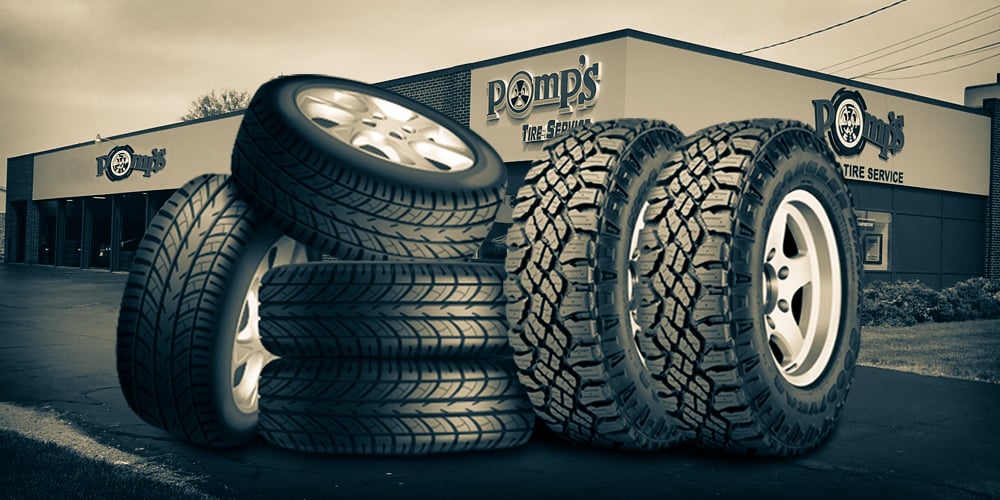Tire Service: The Impact of Weather
When it comes to guaranteeing optimum performance and safety when traveling, comprehending the impact of weather condition problems on tire solution is essential. From scorching warm to icy roadways, each climate element can substantially affect tire performance and overall driving experience. By diving into the impacts of differing weather problems on tires, vehicle drivers can obtain useful insights that might enhance their car's performance and longevity. In this discussion, we will discover the complex relationship between weather and tire service, clarifying the importance of weather-specific tire upkeep techniques and considerations.
Heat and Tire Efficiency
When exposed to heats, tires experience modifications in performance that can significantly impact automobile safety and security and handling. The heat generated from long term driving or hot climate problems creates the tire rubber to soften, resulting in decreased tread life and enhanced wear. As the rubber comes to be softer, the tire's hold when traveling reduces, influencing braking ranges and overall traction. In severe situations, extreme heat can also create tire blowouts, posing a serious security danger to the lorry and its owners.
Winter Effects
Cold climate problems can have a considerable effect on tire performance and safety and security. In cold weather, tires may also lose air pressure more quickly, which can affect taking care of and gas effectiveness.
To mitigate the results of winter on tires, it is vital to on a regular basis check tire stress and inflate them to the supplier's advised levels. Utilizing winter months or all-season tires designed for winter problems can additionally enhance traction and grasp on icy or snowy roads. Appropriate tire maintenance, including routine inspections for wear and damage, becomes much more critical throughout chillier months to make sure optimal efficiency and safety and security.
Rainy Conditions Impact
During wet problems, tire performance and safety and security can be significantly affected by the damp roadway surface areas and decreased exposure. The tread pattern of tires plays a vital function in keeping traction on wet roads. Tires with damaged footsteps are more vulnerable to hydroplaning, where a layer of water develops in between the roadway and the anonymous tire surface area, causing loss of grip. To combat this, drivers should consistently evaluate their tires for adequate tread deepness and take into consideration purchasing tires specifically developed for damp conditions.
Moreover, rainy weather can also reduce exposure, making it challenging for motorists to see the road ahead clearly (GMC Tire Service). In such conditions, it is important to readjust driving rates appropriately and keep a secure following distance to allow for unexpected stops. Correctly inflated tires can additionally assist in preserving control on wet roadways by giving better handling and grip
Snow and Tire Safety And Security
Snow-covered roads position distinct difficulties for vehicle drivers, emphasizing the significance of appropriate tire option and maintenance. When driving in snowy problems, having the ideal tires can make a considerable difference in security and efficiency. Winter months tires are made with special rubber compounds and tread patterns to supply better traction on snow and ice compared to all-season tires. The deeper treads and sipes of winter months tires assist grasp the road better, reducing the danger of moving and sliding.

It is vital to follow supplier guidelines when using and mounting tire chains to avoid damage to the tires and car. By selecting the best tires, preserving appropriate inflation, and considering additional grip help like tire chains, motorists can enhance their security when browsing helpful hints snow-covered roadways.
Weather-Related Tire Maintenance
Weather-related tire maintenance encompasses an array of practices intended at making sure ideal tire feature and long life in various weather situations. One vital facet of weather-related tire upkeep is tire pressure policy. Evaluating tire tread frequently and changing tires when step wear reaches a specific deepness is essential for maintaining traction and security in damaging weather condition.
Final Thought
To conclude, climate condition have a substantial influence on tire efficiency and security. From warmth influencing tire pressure and put on to cool climate reducing grip, it is vital to consider the weather when keeping and utilizing tires. Wet conditions can decrease hold and cause hydroplaning, while snow can raise the danger of mishaps if tires are not properly geared up. Weather-related tire upkeep is essential in guaranteeing optimum performance and safety when traveling.
In this conversation, his explanation we will certainly discover the intricate connection between climate conditions and tire solution, shedding light on the significance of weather-specific tire upkeep methods and factors to consider.
